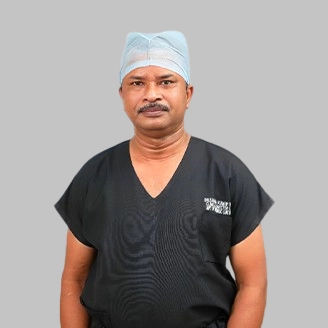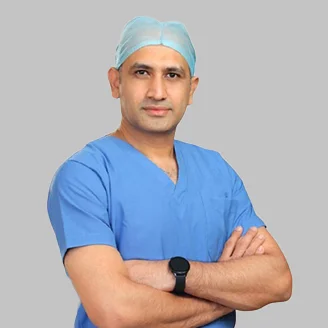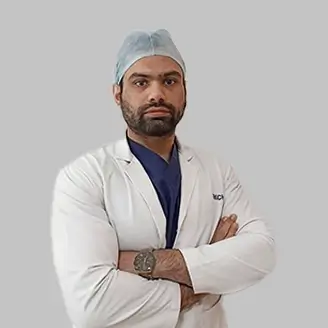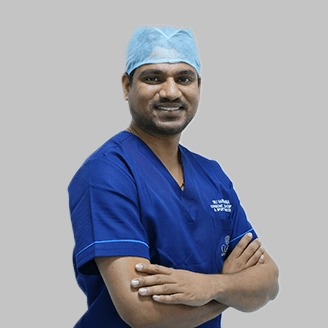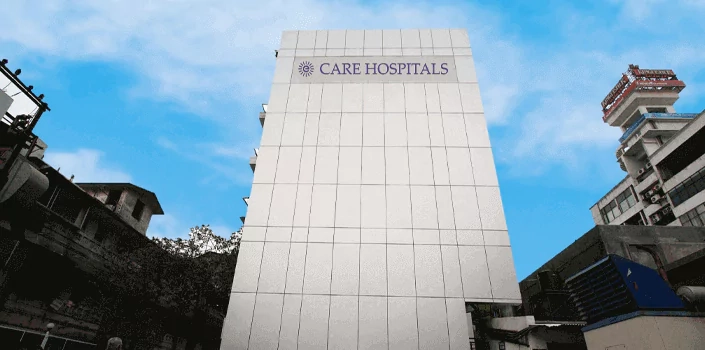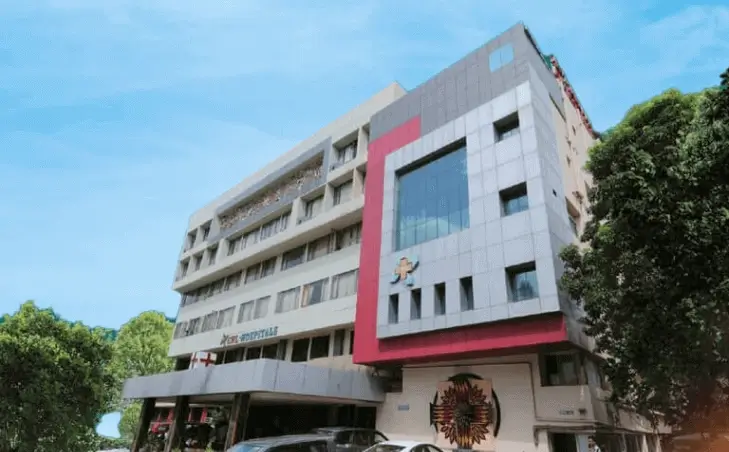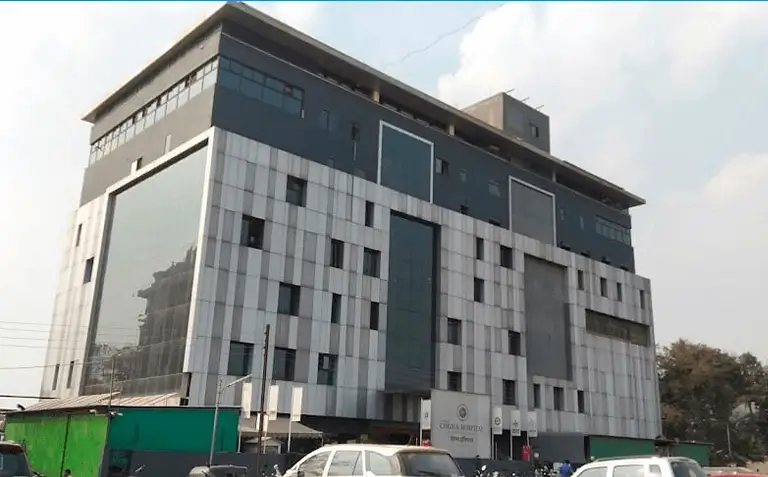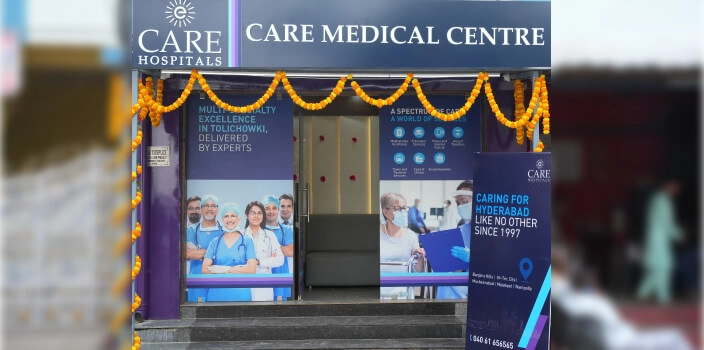-
Doctors
-
Specialities & Treatments
Centre of Excellence
Specialties
Treatments and Procedures
Hospitals & Directions HyderabadCARE Hospitals, Banjara Hills CARE Outpatient Centre, Banjara Hills CARE Hospitals, HITEC City CARE Hospitals, Nampally Gurunanak CARE Hospitals, Musheerabad CARE Hospitals Outpatient Centre, HITEC City CARE Hospitals, Malakpet
HyderabadCARE Hospitals, Banjara Hills CARE Outpatient Centre, Banjara Hills CARE Hospitals, HITEC City CARE Hospitals, Nampally Gurunanak CARE Hospitals, Musheerabad CARE Hospitals Outpatient Centre, HITEC City CARE Hospitals, Malakpet Raipur
Raipur
 Bhubaneswar
Bhubaneswar Visakhapatnam
Visakhapatnam
 Nagpur
Nagpur
 Indore
Indore
 Chh. Sambhajinagar
Chh. SambhajinagarClinics & Medical Centers
Book an AppointmentContact Us
Online Lab Reports
Book an Appointment
Consult Super-Specialist Doctors at CARE Hospitals

Best Hospital for Meniscus Surgery (Meniscectomy) in Hyderabad
- Advanced Technology
- Shorter Hospital Stay
- Pre & Post-Operative Care
- All Insurance Accepted

Chat With Our Experts
Get second opinion on Whatsapp
25 lakhs+
Happy Patients
Experienced and
skilled surgeons
17
Health Care Facilities
Top most Referral Centre
for Complex Surgeries
Advanced Meniscus Surgery (Meniscectomy)
Meniscectomy ranks as the most common orthopedic surgery performed. This knee procedure helps ease pain when doctors remove damaged parts of the meniscus. The meniscus is the shock-absorbing cartilage that protects the knee joint.
Athletes who play contact sports face greater risks. Football and rugby players top the list, and 85% of patients with meniscal and ACL injuries need arthroscopic treatment. Doctors consider several factors to choose between meniscal repair and meniscectomy:
- The type of injury
- The patient's age
- Mechanical symptoms
Research shows that meniscal repair leads to better outcomes and improved function. Meniscectomy surgery boasts an exceptional safety record with minimal complications.

Why CARE Group Hospitals is Your Top Choice for Meniscus Surgery in Hyderabad
CARE Hospitals excels as a top choice for meniscectomy in Hyderabad. Their dedication to excellence makes them the preferred choice for patients who need minimally invasive knee surgery.
CARE Hospitals is known for its all-encompassing approach to orthopaedic care. This ensures world-class treatment customised to each patient's specific needs.
CARE Hospitals has assembled a team of highly skilled orthopaedic surgeons who specialise in complex knee procedures. These experts blend extensive training with years of clinical experience to deliver exceptional care to meniscus tear patients.
The orthopaedic team gives personal attention throughout the patient's treatment - from the initial consultation through post-surgery recovery. This patient-focused approach, combined with modern facilities, helps deliver the highest quality care.
Best Meniscus Surgery Doctors in India


State-of-the-art Surgical Breakthroughs at CARE Hospitals
Surgical advancements are the lifeblood of successful meniscus procedures at CARE Hospitals. The orthopaedic department uses advanced technology to achieve the best surgical outcomes:
- High-definition Arthroscopy - Providing crystal-clear visualisation of the knee joint for precise surgical intervention
- All-inside Repair Techniques - Minimising surgical trauma and promoting faster recovery
- Biological Augmentation - Applying growth factors to increase meniscal healing
- Computer-assisted Navigation - Ensuring accurate placement of sutures and implants
Minimally invasive surgical techniques lead to shorter recovery times, less pain, and better mobility after surgery. The orthopaedics department focuses on preventive care & rehabilitation along with surgical interventions to achieve optimal patient outcomes.
Conditions for Meniscus Surgery
Your doctor might recommend surgery if conservative treatment doesn't help with your torn meniscus. A meniscectomy becomes the right choice if:
- Your knee's locking, catching, or giving way regularly
- Pain persists even after rest and medication
- The tear's size or location prevents natural healing
- Daily activities make your knee feel unstable
Not every meniscus tear needs surgery. Small tears in the outer "red zone" often heal naturally because of good blood supply. Rest and physical therapy work well in these cases. The inner "white zone" tears are nowhere near as likely to heal because blood flow is limited.
Types of Meniscus Surgery Procedures
The type and tear's severity determine which surgical option works best:
- Arthroscopic Partial Meniscectomy: This approach removes only the damaged tissue while keeping healthy parts intact. The surgeon creates small incisions and uses tiny instruments to remove torn fragments that affect joint movement. Patients recover faster because a healthy meniscus stays in place.
- Total Meniscectomy: Surgeons rarely choose this option today. It removes the entire meniscus if the damage proves extensive. Notwithstanding that, patients might face a higher risk of knee arthritis later.
- Meniscus Repair: The surgeon stitches torn edges together instead of removing tissue. Young patients with tears in the outer "red zone" benefit most from this option.
- Meniscus Transplantation: Younger patients (typically under 45) who have lost most or all their meniscus might receive a donor meniscus from a cadaver. Specific conditions must exist to consider this less common procedure.
Your age, tear location, tear pattern, and overall knee health determine the best procedure for you.
Know your Procedure
Proper preparation for meniscectomy leads to better outcomes and quicker recovery. Here's what you should know about each step of your surgical trip.
Pre-surgery Preparation
You will need several tests before meniscus surgery, including blood work, EKG, chest X-ray, knee X-ray, and possibly an MRI.
Your surgeon needs to know about all medications and supplements you take since some might need to be stopped temporarily.
You must fast for 12 hours before your procedure.
Meniscus Surgical Procedure
After giving anaesthesia, the surgeon makes small incisions around your knee during arthroscopic meniscectomy - less than half an inch. They use a tiny camera called an arthroscope to see the tear.
The surgeon either repairs the meniscus with sutures, removes the damaged portion (partial meniscectomy), or, in rare cases, removes the whole meniscus (total meniscectomy).
The whole procedure usually takes about an hour.
Post-surgery Care
The RICE method works best if applied right after surgery. It includes rest, ice, compression, and elevation.
You will probably need crutches for about a week. Physical therapy is vital to restore your mobility and strength. Recovery times can differ:
- Meniscectomy usually takes six weeks
- Meniscus repair might take up to three months
- Most patients return to sports or physical activities 4-6 weeks after partial meniscectomy.
Risks and Complications
Meniscectomy remains safe with minimum complications. The risks include:
- Infection
- Blood clots
- Nerve damage
- Persistent swelling
- Knee stiffness
- Long-term issues might include a higher risk of osteoarthritis, especially after total meniscectomy.
Benefits of Meniscus Surgery
This procedure helps relieve pain, improves knee stability, and brings back normal function. Patients can usually get back to their daily activities and sports. Meniscus repair shows good results for traumatic tears, whereas partial meniscectomy works better for degenerative tears.
Insurance Assistance for Meniscus Surgery
Health insurance plans typically cover meniscectomy as doctors see it medically necessary. Your coverage should include hospital expenses, doctor's fees, medical tests, and pre and post-hospital costs. You should check with your provider about specific coverage details and get ready with claim forms, doctor's prescriptions, and medical records.
Second Opinion for Meniscus Surgery
Getting another medical opinion makes sense, especially if surgery is recommended. A second look helps confirm your diagnosis, shows other treatment options, and gives you peace of mind. Look for specialists who know meniscus procedures well, get all your medical records and write down questions about your condition.
Conclusion
Meniscectomy is a safe and effective solution for people with meniscus tears. This procedure helps patients get back their mobility and return to an active life smoothly.
CARE Hospitals delivers outstanding meniscus treatment through advanced technology and skilled surgeons. Their patient-first approach will give each person tailored care, from initial diagnosis through rehabilitation.
Good preparation before surgery substantially improves your outcomes. Post-surgical care is vital to recovery success. Most patients go back to normal activities within 4-6 weeks after partial meniscectomy. Meniscus repair might take up to three months.
A specialist can help you decide if surgery is the best option for you. The path from diagnosis to full recovery needs dedication, but freedom from pain and restored mobility make this procedure worth thinking about.
Meniscus Surgery Hospitals in India
-
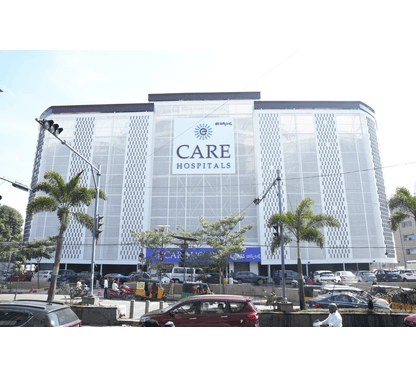
CARE Hospitals, Banjara Hills, Hyderabad
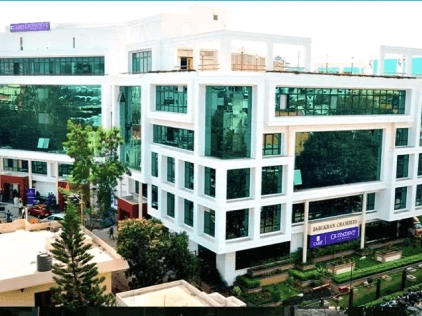
CARE Hospitals Outpatient Centre, Banjara Hills, Hyderabad
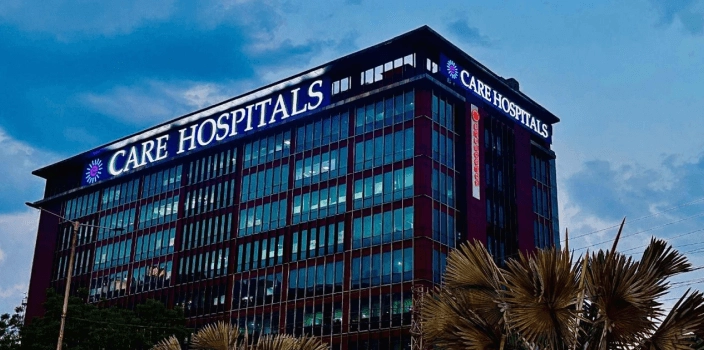
CARE Hospitals, HITEC City, Hyderabad
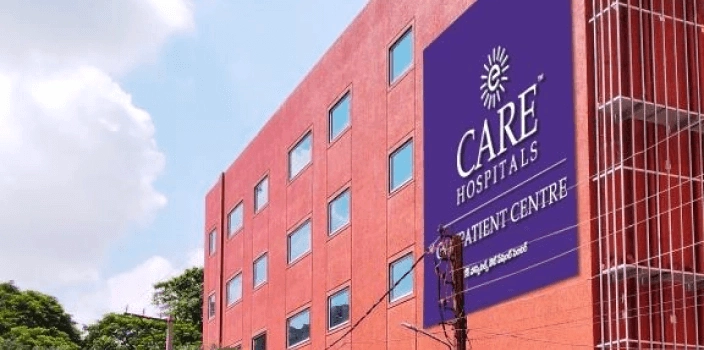
CARE Hospitals Outpatient Centre, HITEC City, Hyderabad
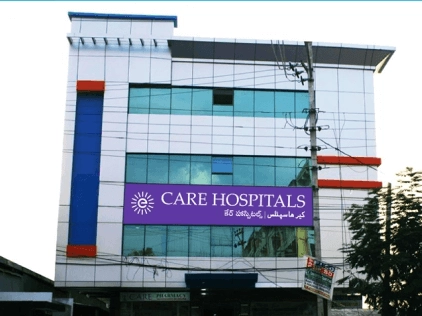
Gurunanak CARE Hospitals, Musheerabad, Hyderabad
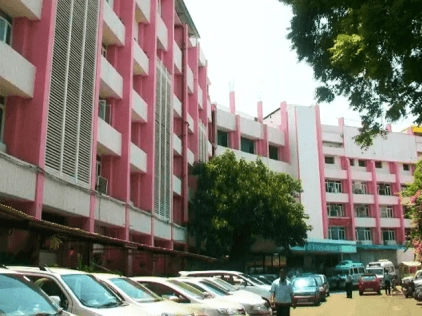
CARE Hospitals, Nampally, Hyderabad
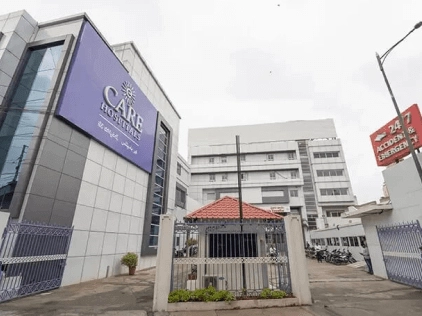
CARE Hospitals, Malakpet, Hyderabad
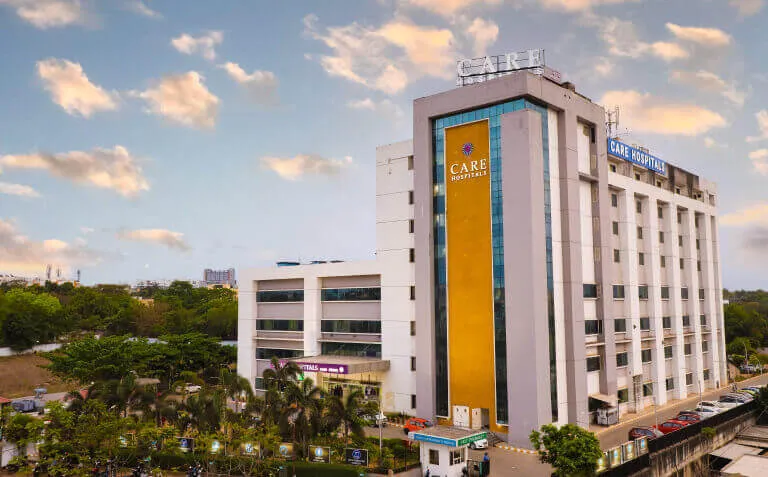
CARE Hospitals, Bhubaneswar
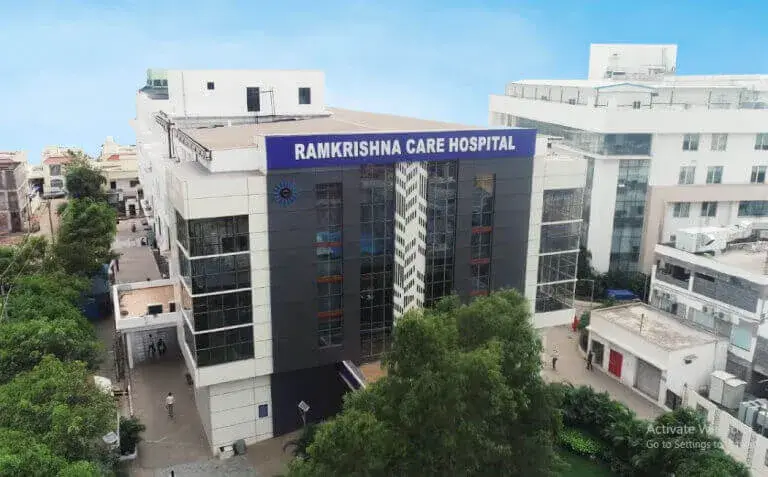
Ramkrishna CARE Hospitals, Raipur
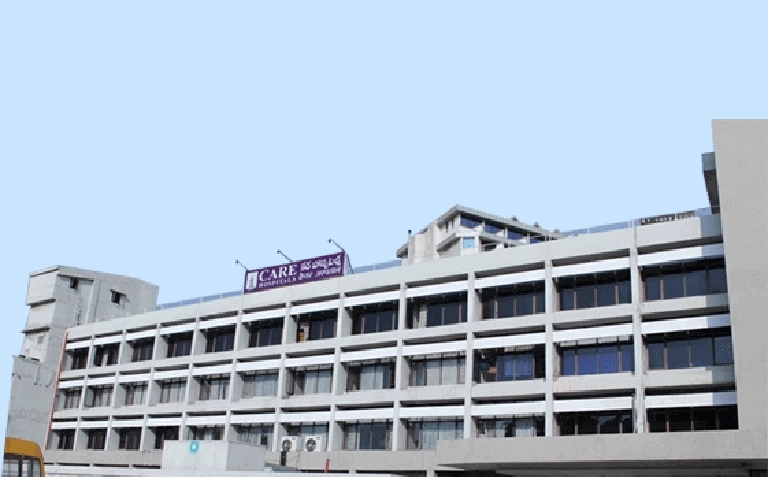
CARE Hospitals, Ramnagar, Visakhapatnam
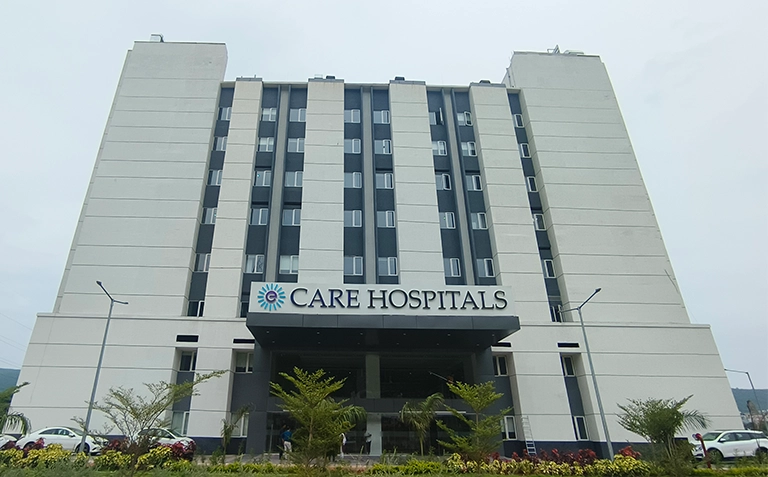
CARE Hospitals, Health City, Arilova
Related Surgeries
- Best Hospital for Spinal Fusion Surgery in Hyderabad
- Best Hospitals for Ankle Surgery in Hyderabad
- Best Hospital for Carpal Tunnel Release Surgery in Hyderabad
- Best Hospitals for Ligament Repair Surgery in Hyderabad
- Best Hospitals for Elbow Surgery in Hyderabad
- Best Hospitals for Arthroscopic Meniscal Repair Surgery in Hyderabad
- Best Hospital for Arthroscopy Surgery in Hyderabad
- Best Hospital for ORIF(Open Reduction Internal Fixation) Surgery in Hyderabad
- Best Hospital for Spine Decompression Surgery in Hyderabad
- Best Hospitals for Shoulder Arthroscopy Surgery in Hyderabad
- Best Hospital for K-Wire Fixation Surgery in Hyderabad
- Best Hospitals for Arthroscopic Knee Aspiration Surgery in Hyderabad
- Best Hospital for Bipolar Hemiarthroplasty Surgery in Hyderabad
- Best Hospital for Hemarthrosis Knee Surgery in Hyderabad
- Best Hospital for Meniscus Surgery (Meniscectomy) in Hyderabad
- Best Hospital for Proximal Femoral Nail (PFN) Surgery in Hyderabad
- Best Hospitals for Osteotomy Surgery in Hyderabad
- Best Hospitals for Arthroscopic Reconstruction Surgery in Hyderabad
- Best Hospitals for Bone Marrow Aspirate Concentrate (BMAC) Surgery in Hyderabad
- Best Hospital for Tension Band Wiring Surgery in Hyderabad
- Best Hospital for Shoulder Rotator Cuff Repair Surgery in Hyderabad
- Best Hospital for Shoulder Replacement Surgery in Hyderabad
- Best Hospital for Humerus Plating Surgery in Hyderabad
- Best Hospital for Tendon Repair Surgery in Hyderabad
- Best Hospital for Spinal Decompression Surgery in Hyderabad
- Best Hospital for Posterior Cruciate Ligament (PCL) Surgery in Hyderabad
- Best External Fixator Surgery in Hyderabad
- Best Hospital for UCL Reconstruction Surgery in Hyderabad
- Best Hospital for Hip Resurfacing Surgery in Hyderabad
- Best Hospital for Ganglionectomy in Hyderabad
Frequently Asked Questions
Meniscus surgery fixes torn cartilage in your knee joint. The surgeon either repairs the tear with stitches or removes the damaged part (meniscectomy).
The surgery usually takes 30 to 60 minutes. Surgery time varies based on the following:
- Location and severity of your tear
- Mechanical symptoms like locking or catching
- Other knee problems that need attention
Meniscus surgery isn't major surgery. It's an outpatient procedure, so patients go home the same day.
Recovery depends on your procedure:
- Partial meniscectomy: About 4-6 weeks
- Meniscus repair: Around 3 months
- Meniscus replacement: Several months
If you do not treat meniscus tears on time, it can worsen and lead to several problems:
- Ongoing pain and swelling
- Early knee osteoarthritis
- Unstable joints and locked knees
- Limited motion range
- Weak muscles around the knee
- Permanent damage to your knee's function
Some tears heal naturally, but this depends on where they are and how bad they get. Younger patients with mild tears sometimes get better with rest and basic treatment. In severe cases, you need professional care to heal correctly.
Yes, doctors use MRI scans to confirm meniscus tears. The MRI shows detailed images of the tear's type, location, and severity. These images help your surgeon pick the best treatment for your specific case.
Several factors work together in making this choice:
- Tear location
- Patient age
- Tear type
- Overall knee health
Look out for these warning signals after your procedure:
- Pain that doesn't improve over time
- Swelling that returns or stays
- Clicking or popping sounds during movement
- Problems fully bending or straightening your leg
- Your knee feels unstable beneath you
- Limited progress despite following recovery protocols
- Pain during twisting movements
Still Have a Question?







